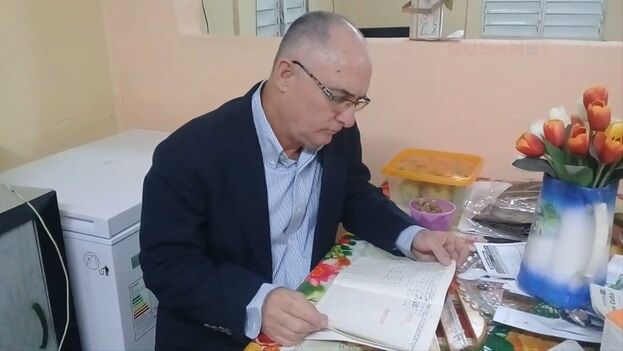
![]() 14ymedio, Yoani Sanchez, Havana, 29 December 2019 — The Cuban independent press has experienced one of its most intense and productive years in 2019. Despite the authorities’ censorship and increased repression against journalists, private media are gaining space in a country where the Constitution gives the state a monopoly over this sector.
14ymedio, Yoani Sanchez, Havana, 29 December 2019 — The Cuban independent press has experienced one of its most intense and productive years in 2019. Despite the authorities’ censorship and increased repression against journalists, private media are gaining space in a country where the Constitution gives the state a monopoly over this sector.
The arrest, prosecution and sentence of one year in jail for a contributor to Cubanet, Roberto Quiñones, who is now being held in the Guantanamo Provincial Prison, has been the worst attack on independent journalists in these twelve months.
This case has highlighted the animosity of the Plaza of the Revolution towards the existence of media not controlled by the Communist Party; and it has also shown the repeated use of the strategy of convictions for common crimes as a way to penalize the opposition, activism and journalism.
Others have suffered different repressive tactics, such as the ban on leaving the country. This has been “the year of the regulated,” as the regime refers to individuals who, without having committed any crime, cannot travel as punishment for their opinions, writing or reporting. According to data from independent organizations, more than 200 Cubans have suffered the violation of their right to leave the island freely and among them there are several journalists, although this punishment is mostly applied to activists.
One journalist affected is the reporter and founder of Tremenda Nota magazine, Maykel González Vivero, whose only “crime” has been to relate reality, to offer a space to the voices of the most persecuted minorities in Cuba. A member of a generation of young graduates in journalism who have now decided to make the leap from the official press to the independent press, Gonzalez has also suffered pressures, threats and warnings from State Security.
In our own newsroom, 14ymedio has also experienced tense moments this year. Our journalist Luz Escobar has been “regulated” and has not been able to leave the country. In addition, on the dates that the Government has considered noteworthy, the reporter has not even been able to leave her house because an agent of the political police have warned her she would be arrested if she set foot outside her home.
During the celebrations for the 500th anniversary of Havana the police cordon around the independent press was tightened and several journalists had to stay locked in their homes or were visited by State Security officers to inform them that they were not going to be allowed to cover a story, to approach certain places in the city or to participate in any public activity.
In independent march, organized last May 11 in defense of the rights of the LGBTI community, several reporters were arrested, including Iliana Hernandez and Boris Gonzalez. Others could not even get to the place because the strategy of information censorship has continued to consist of enclosing, erasing, shutting up reporters so that they cannot tell the reality as if, if the chronicler or the photographer didn’t exist it could be said that a certain event never it happened.
But there is also reason for pride in the guild. Last October, journalist Mónica Baró Sanchez won the Gabo 2019 Award in the category of text reporting for The Blood Was Never Yellow, published in Periodismo del Barrio, and demonstrated with that accolade that the private press is doing a professional job, and with standards of ever higher quality.
The Cubacron contest convened by the Institute of Press and Society (Ipys), based in Peru, which rewarded the best reporters of the Island, and which raised an important controversy by nominating even reporters for the official media, was also one of the good moments of this year.
The media independent of the State have registered an increasing growth and recognition on and off the Island. As heirs of those first reporters who were continuously arrested in the 80s and 90s — their work equipment confiscated and their names tainted in the Official press — today’s reporters have new obstacles to overcome.
Now, thanks to new technologies we are going even further. Social networks, digital devices and podcasts have changed the face of communications in Cuba. But the fundamental thing we can count on is readers who want to access other information, different from that offered by state newspapers, which confuse the press with propaganda and criticism with treason.
Cuba has a vigorous independent press and in 2020 everything indicates that it will be felt even more strongly.
______________________
COLLABORATE WITH OUR WORK: The 14ymedio team is committed to practicing serious journalism that reflects Cuba’s reality in all its depth. Thank you for joining us on this long journey. We invite you to continue supporting us by becoming a member of 14ymedio now. Together we can continue transforming journalism in Cuba.
